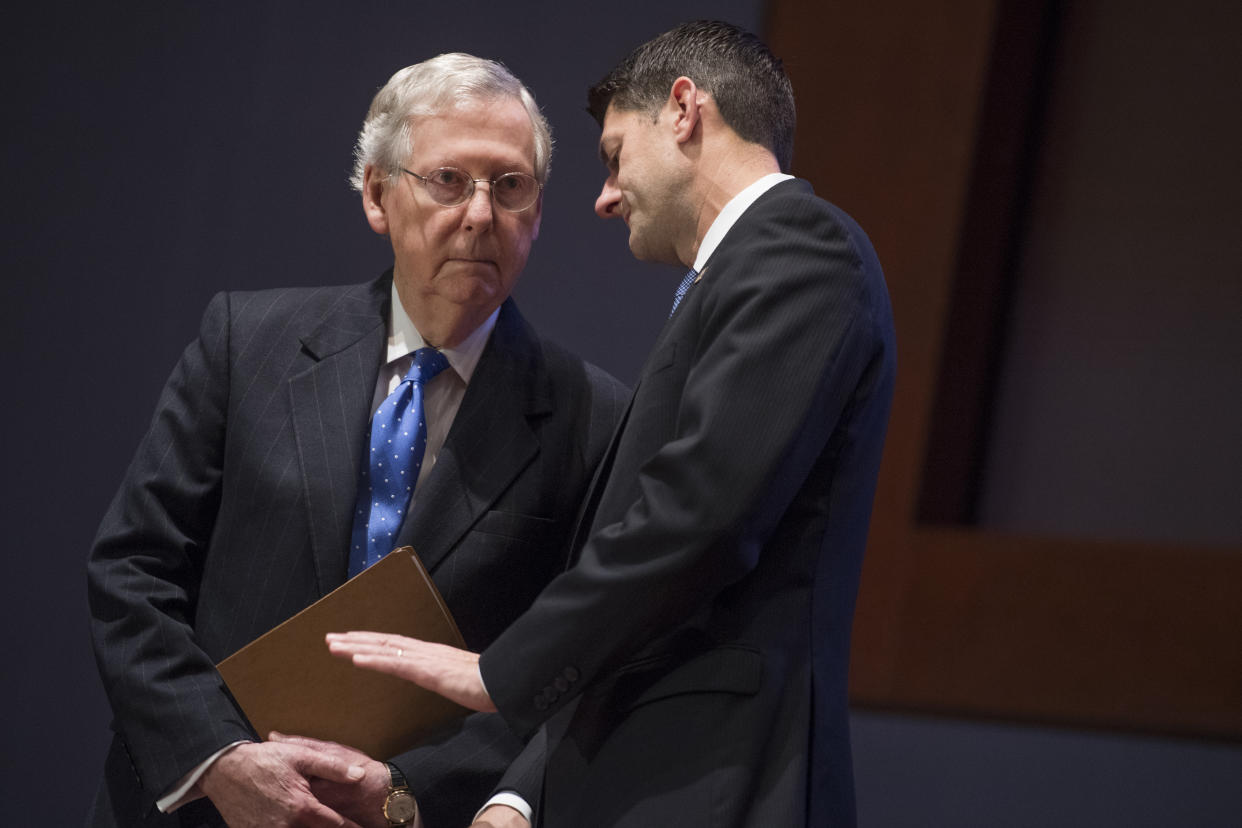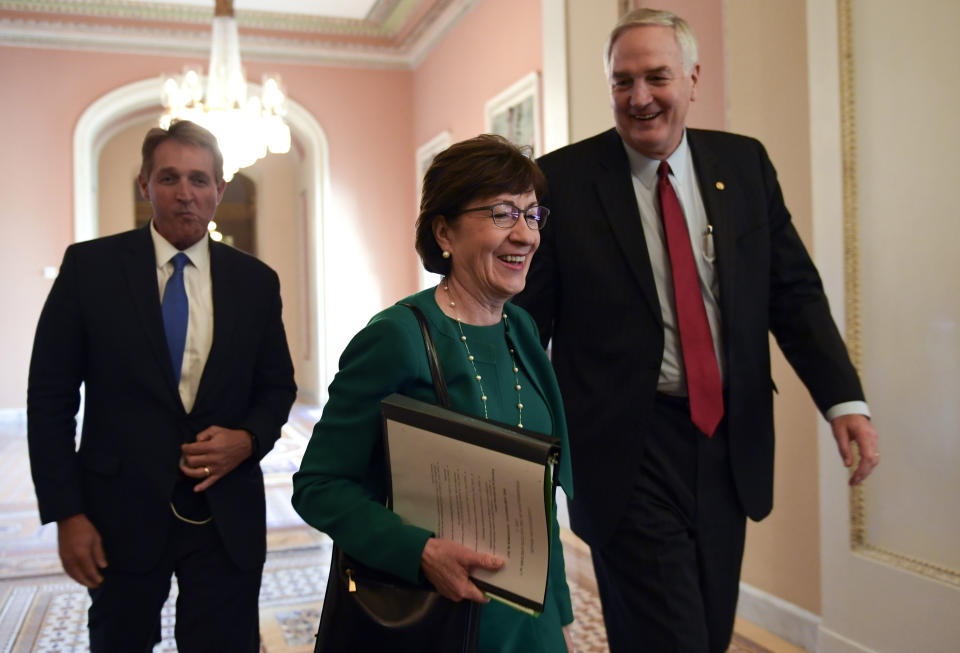Congress tax conference to tackle individual mandate, corporate tax cut

WASHINGTON — A group of bipartisan lawmakers appointed to the Senate and House conference committee on tax reform will have a host of issues to iron out when they have their first meeting early next week — from calls to raise the corporate tax rate to delivering on a health care deal to win over a key swing vote in the Senate.
President Trump recently called the conference committee a “mixer” in which lawmakers will combine the House and Senate tax reform bills and come out with something that’s “perfecto.” He expects that bill to land on his desk before Christmas.
The mixing is likely to be a messy process, however, as many differences remain between the two pieces of legislation, and House and Senate Republicans face distinct political pressures.
Some House conservatives are bristling at a deal made between Senate Majority Leader Mitch McConnell, R-Ky., and Sen. Susan Collins, R-Maine, that both the House and Senate would pass two bills to shore up the Affordable Care Act’s individual markets in order for her to back tax reform. One of the bills would restore billions of dollars in subsidies to insurance companies that lower premiums for lower-income customers while the other would allow states to form high-risk pools for sicker customers.
Collins made the deal because the Senate bill would repeal Obamacare’s individual mandate, and she believes these two stabilizing bills are needed to help offset negative effects on customers’ premiums from that repeal. (The Congressional Budget Office estimates that premiums would rise if the individual mandate is repealed.)
Collins, a moderate who voted for the Senate’s bill last week but against the GOP’s Obamacare-repeal plans, said she believes her agreement with McConnell covers the House, as well. “The negotiations are going well and I remain confident despite your skepticism,” Collins told reporters Thursday.

House Speaker Paul Ryan sounded positive about this deal in a press conference, though he said he was not involved in the discussions. “She’s put some very productive solutions on the table,” Ryan said of Collins. “Our members are looking at the same kind of solutions.”
But not everyone is on board yet.
“I am not bound by some deal that a few senators make,” Rep. Jeff Fortenberry, R-Neb., told Yahoo News. “I don’t work for the United States Senate — nobody else does around here, either.”
“Our members wince at voting to sustain a system that none of them supported,” Rep. Tom Cole, R-Okla., told the New York Times.
Meanwhile, lawmakers will also have to address complaints over the bills’ treatment of state and local income and property taxes. The House and Senate bills allow taxpayers to deduct $10,000 in state and local property taxes, eliminating income tax deductions and deductions for more expensive properties. House members on both sides of the aisle from high tax states such as New Jersey and California have complained that eliminating these deductions will raise taxes on their constituents. Critics have argued that the bill intentionally distributes some of its pain to Democratic states, which tend to have higher local taxes.
McConnell told conservative radio host Hugh Hewitt on Wednesday he was open to changing the bill so that the $10,000 could be used for deducting either property taxes or income taxes, opening up the reduced deduction to more people. “That sounds like a kind of reasonable idea,” McConnell said.

Meanwhile, the president opened the door to giving corporations a slightly less generous tax rate of 22 percent instead of the 20 percent currently in the legislation. (The current tax code levies a 35 percent rate on businesses.)
Some Republican senators have jumped on this idea, hoping that the extra revenue could fund a more generous child tax credit or be used to repeal another tax on corporations, the alternative minimum tax.
But resistance remains.
“I’m likely to advocate on keeping it where it is,” said Sen. Tim Scott, R-S.C., a member of the conference committee.
Read more from Yahoo News:



